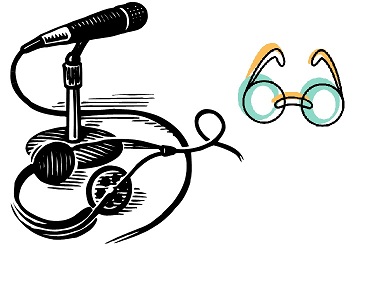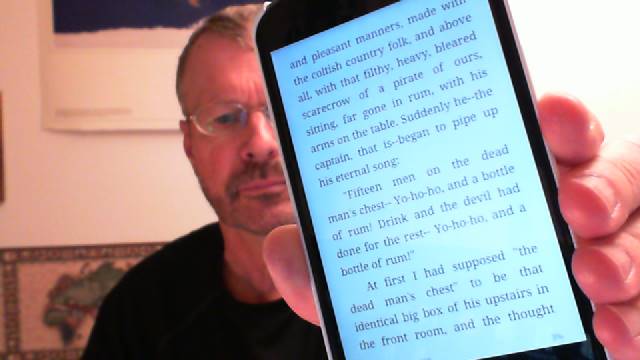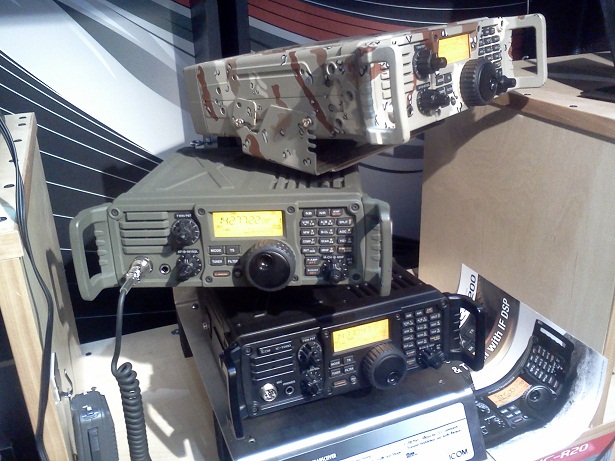
Courage Kenny Handiham World Weekly E-Letter for the week of Wednesday, 13 November 2013
This is a free weekly news & information update from Courage Kenny Handiham System. Our contact information is at the end, or simply email handiham@couragecenter.org for changes in subscriptions or to comment. You can listen to this news online.
MP3 audio:http://www.handiham.org/audio/handiham.mp3
Get this podcast in iTunes:
RSS feed for the audio podcast if you use other podcasting software:http://feeds.feedBurner.com/handiham
Welcome to Handiham World.
Failing the Technician
A quick path to failure is to make an all too common mistake...
Here's the scenario: An eager young man shows up at a VE session, ready to take that first step into Amateur Radio by passing the Technician exam and getting a callsign. He has studied and feels prepared. The exam is only 35 multiple choice questions covering a subject he knows well from having read through the study guide several times. It won't be hard to get the required 75% passing grade, 26 questions or more correct.
Shortly after settling down at an exam table, he starts working his way through the test booklet. It seems odd, but some of the questions seem to be out in left field - there are topics he doesn't recall from the book. Other questions are worded differently than he remembers them, but he can take an educated guess at the answer. When it's time to turn in the exam materials for grading, he doesn't feel quite so confident.
Waiting outside the testing room isn't easy. Finally the door opens and a volunteer examiner approaches him. There's no big smile on the examiner's face as he gets the bad news: he's failed the Technician exam and will not join the ranks of ham radio operators, at least not today.
What went wrong? He had studied, putting a lot of time and effort into the preparation for this examination. He'd taken plenty of other tests before and knew how to study.
The volunteer examiner felt bad, too. She asked him about his studies.
Had he studied prior to the exam?
Yes.
Had he taken any on line practice exams?
No, he didn't know about the websites that offered such a service. His rural location had poor internet access and all of his computer time was spent at school or the public library, mostly for homework.
The volunteer examiner had an idea. "Did you bring your study guide along with you?", she asked.
Yes, he had the book along, and pulled it out of his backpack and handed it to the VE.
As soon as she saw the book she recognized it - a popular study guide that was published in 2001. No wonder this young man had gotten so many questions wrong. There had been many rules and regulations changes in the past decade alone, and the question pool was completely different. Even the questions on electronics were reworded, with many new ones chosen to replace older ones on any given topic of radio safety and theory. Since he didn't take any on line practice exams, he didn't find out that the questions in his book were long out of date.
Does this sound like a made-up story? Well, I did make up this scenario, but I based it on a real-world incident that is being discussed right now on an Amateur Radio instructor forum. The young man and his disappointing mistake are real. The discussion forum is parsing the reasons why such a thing could happen: Old books lingering on library shelves, books handed down from someone else and used past their expiration date, ignorance of on line practice exam resources, and more.
There's a special reason I'm writing about this today. Later on this evening I'll be part of my own club's VE team, the same team that fields exams at our Handiham Radio Camps. Like all of our team members, I'm eager to see new hams walk out of our test session, smiling as they carry their CSCE's and thinking ahead to how they will set up their stations. Some will be there for upgrade exams, and they too will be thinking of new frequencies to use and perhaps which HF gear to consider to accommodate their new goals of DX operation or contesting. Believe me, no one wants to see newbies succeed more than the VE team members. I love to give out good news when I step out of the exam room to see a candidate who is awaiting his or her results. And it's really hard to give out bad news. You can't help thinking about your own experience with studying and taking exams, and how you felt when you passed or failed, then finally passed and got your license.
What advice do you give to a candidate who didn't make it?
Job one is to identify the problem and make helpful, positive suggestions on how to correct it. You are there to help the candidate succeed. It is best to avoid being judgmental, so instead of telling the candidate that he should have looked at the forward pages of the study guide to determine that it was out of date or that he should have known about practice exam sites, it is far better to simply suggest a current study guide and write down the web addresses for some good practice exam sites.
The next thing to do is to assure the candidate that yes, an Amateur Radio license is well worth the effort and that they can - and will - pass the examination, given the right preparation. This is a good time to have some practical information ready to hand out to the candidate: A list of upcoming VE sessions, practice exam websites, and suggested study guides. If time allows, you might also make some suggestions about how to study, especially if the candidate indicates that certain concepts were really difficult to master.
I hope that tonight's session is a good one. I love to give out "good news", but I've done this long enough to know that some candidates might not pass. If that happens, I'm ready.
Patrick Tice, WA0TDA
Courage Kenny Handiham Coordinator





